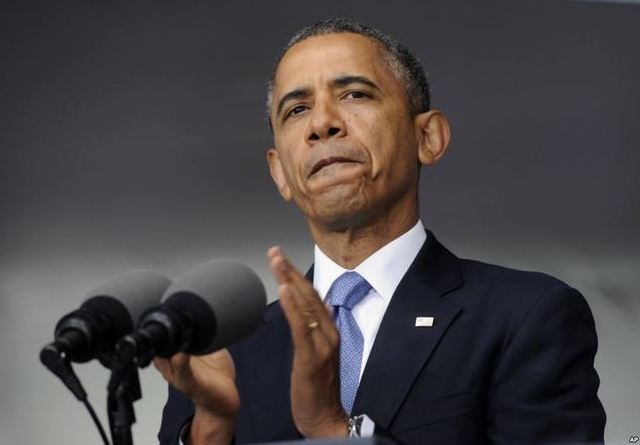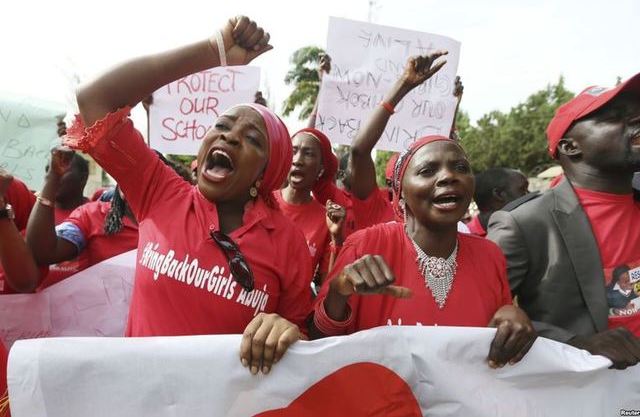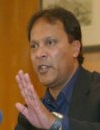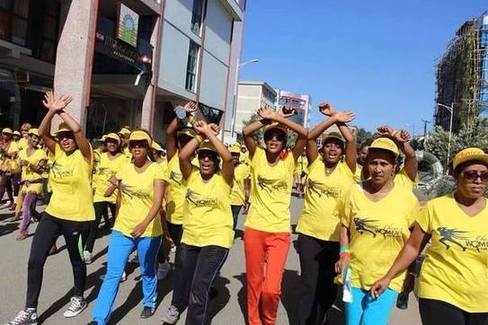VOA News
May 28, 2014
U.S. President Barack Obama said that American isolationism is not an option, but not every problem has a military solution, during a speech in which he defined his foreign policy approach.
In a commencement speech to U.S. Military Academy graduates, Obama said that America will always be a world leader, but military action cannot be the only force behind its leadership.
“Here’s my bottom line: America must always lead on the world stage. If we don’t, no one else will,” Obama said.
“The military that you have joined is, and always will be, the backbone of that leadership. But U.S. military action cannot be the only – or even primary – component of our leadership in every instance,” he added.
Addressing the graduates, Obama said the world is changing at an accelerating pace, which “presents opportunities, but also new dangers.”
“It will be your generation’s task to respond to this new world. The question we face, the question each of you will face, is not whether America will lead, but how we will lead,” Obama said.

President Barack Obama applauds those who serve in Iraq and Afghanistan as he deliverers the commencement address to the U.S. Military Academy at West Point’s Class of 2014, in West Point, N.Y., May 28, 2014. (AP photo)
‘Isolationism not an option’
Foreign policy experts have increasingly criticized Obama’s handling of issues such as the civil war in Syria, the political crisis in Ukraine and the struggle against terrorism, saying the U.S. no longer holds a leadership position in world affairs.
In his speech, though, the president attempted to promote U.S. foreign policy as finding a balance between isolationism and interventionism.
Obama said some critics say conflicts, such as those in Syria, Ukraine or the Central African Republic, are not for the U.S. to solve.
“Not surprisingly, after costly wars and continuing challenges at home, that view is shared by many Americans,” he said.
The opposite view says “we ignore these conflicts at our own peril; that America’s willingness to apply force around the world is the ultimate safeguard against chaos, and America’s failure to act in the face of Syrian brutality or Russian provocations not only violates our conscience, but invites escalating aggression in the future,” he said.
“Each side can point to history to support its claims. But I believe neither view fully speaks to the demands of this moment,” Obama said.
“It is absolutely true that in the 21st century, American isolationism is not an option,” he added.
Diplomacy efforts
Obama said, when America’s core interests demand it – our people are threatened or allies are in danger – the U.S. will use military force. But, when global issues don’t pose a direct threat to the U.S., the threshold for military action must be higher.
“In such circumstances, we should not go it alone. Instead, we must mobilize allies and partners to take collective action. We must broaden our tools to include diplomacy and development; sanctions and isolation; appeals to international law and – if just, necessary, and effective – multilateral military action,” the president said.
Obama cited international sanctions against Russia for its involvement in Ukraine unrest as an example of the effectiveness of multilateral action.
“Our ability to shape world opinion helped isolate Russia right away,” he said.
“Because of American leadership, the world immediately condemned Russian actions. Europe and the G-7 joined us to impose sanctions. NATO reinforced our commitment to Eastern European allies. The IMF is helping to stabilize Ukraine’s economy. OSCE monitors brought the eyes of the world to unstable parts of Ukraine, and this mobilization of world opinion and international institutions served as a counterweight to Russian propaganda, and Russian troops on the border and armed militias in ski masks,” Obama added.
Fighting terrorism
Rather than launching large-scale military efforts, Obama called for partnering with countries where terrorist networks seek a foothold.
That effort includes a new $5 billion fund to help countries fight terrorism and to expand funding for Defense Department intelligence, surveillance, reconnaissance, special operations and other activities.
“Indeed, this should be one of the hard-earned lessons of Iraq and Afghanistan, where our military became the strongest advocate for diplomacy and development,” Obama said.
“Foreign assistance isn’t an afterthought – something nice to do apart from our national defense. It’s part of what makes us strong,” he added.
The president’s broad vision for America’s role in the world – one that is reliant on international diplomacy and avoids over-reaching or unilateral action – has drawn fire from opposition Republicans in Congress and various foreign policy pundits, who would prefer a more robust approach.
“Since World War II, some of our most costly mistakes came not from our restraint, but from our willingness to rush into military adventures – without thinking through the consequences; without building international support and legitimacy for our action, or leveling with the American people about the sacrifice required,” Obama said.
Afghanistan troop decision
The speech in West Point, N.Y., came one day after the president put forward a blueprint for ending U.S. military engagement in Afghanistan by the time he leaves office.
Republicans in the Senate, most vocally John McCain, Lindsey Graham, Kelly Ayotte, called Obama’s decision on Afghanistan a monumental mistake on Tuesday, saying the response was a victory of politics over strategy.
Secretary of State John Kerry, speaking to Good Morning America Wednesday, bristled at the criticism.
“Well, I just flatly disagree. There seems to be an industry of automatic opposition to anything, but the fact is that everything that has been accomplished in Afghanistan in the last five years has been accomplished with a deadline,” Kerry said.
In defending the decision regarding troop levels in Afghanistan on CBS This Morning, Kerry said, “What it really is is a statement of transition that is appropriate to the timing as expressed by the military and the generals and by the situation on the ground in Afghanistan.”
Kerry said the U.S. understands “its role of leadership in the world,” adding that the U.S. is continuing to lead in Iran; Syria, where the U.S. is increasingly offering assistance to the Syrian opposition; and in “Maghreb, in the Sahel, in the Levant, in South Asia and in East Asia.”
“The fact is, the United States is more engaged in more places than it has ever been at any time in history,” Kerry said.
Obama told the West Point graduates that “you are the first class to graduate since 9/11 who may not be sent into combat in Iraq or Afghanistan.”
Syria aid
Obama cast the bloody civil war in Syria as more of counterterrorism challenge than a humanitarian crisis.
The president defended his decision to keep the U.S. military out of the conflict but said he would seek to increase support for the Syrian opposition, as well as neighboring countries including Jordan, Lebanon, Turkey and Iraq that have faced an influx of refugees and fear the spread of terrorism.
“I will work with Congress to ramp up support for those in the Syrian opposition who offer the best alternative to terrorists and a brutal dictator,” he said.
“And we will continue to coordinate with our friends and allies in Europe and the Arab World – to push for a political resolution of this crisis, and make sure that those countries, and not just the United States, are contributing their fair share of support to the Syrian people,” Obama added.
—
Related:
How Obama’s So-Called Foreign Policy Critics Ignore Context & Facts
Join the conversation on Twitter and Facebook.





